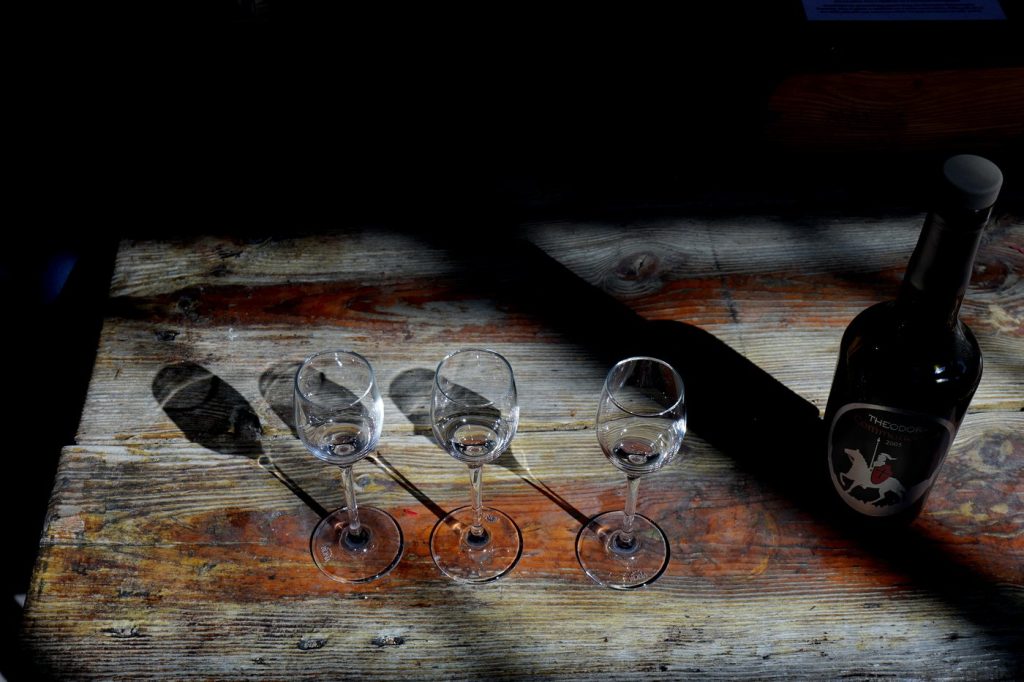NICOSIA, Cyprus (AP) - Celebrated by ancient Greek writers such as Homer and Euripides nearly 3,000 years ago, Commandaria from Cyprus holds the distinction of being the world's oldest recorded and named wine. This sweet wine boasts a rich heritage that has significantly influenced its cultural and historical relevance. However, in recent times, Commandaria has faced challenges in securing a foothold in the global wine market.
To address this issue, several micro-wineries located on this East Mediterranean island are revitalizing traditional winemaking practices, aiming to position Commandaria for a much-desired resurgence. These producers seek to leverage the storied legends surrounding the ruby red wine to attract attention. It is believed that Commandaria won the first documented wine competition during the 13th century under the reign of French King Philippe Augustus. Notably, English King Richard the Lionheart allegedly served the wine at his wedding in Cyprus in 1191, and 14th-century Mayor of London Henry Picard reportedly treated various monarchs to Commandaria during the Feast of the Five Kings.
Originally known as "nama," the wine received its modern name from the medieval Knights Hospitaller, who established their headquarters at an estate renowned for its wine, which they termed Grande Commanderie. Subsequently, during Byzantine times, the Orthodox Church adopted Commandaria as its communion wine. The wine’s production peaked during Venetian rule in the 15th and 16th centuries, when its sweetness and complex bouquet were highly valued. Currently, bottles are priced between 20 euros ($20) to as much as 150 euros.
The wine's unique flavor profile, which includes notes of honey, raisin, walnut, fig, carob, cinnamon, coffee, and caramel, is attributed to Cyprus's rich volcanic soil, as described by Christakis Nicolaou, the community leader of Zoopigi village, the site of the Commandaria museum. In recent years, annual production has stabilized around 200,000 bottles, but demand has diminished, partly due to sanctions that have affected approximately 800,000 Russian tourists who traditionally enjoyed Commandaria. Additionally, while efforts to penetrate the Chinese market began five years ago, progress has stalled as producers struggled to meet demand.
Wine expert Demetri Walters, a Master of Wines, highlights that Commandaria's international sales have been lackluster mainly due to insufficient marketing strategies. He noted that KEO, the island's primary producer, has been slow to grasp the potential of the wine, especially their older vintages. Walters remarked, “A shame, as their Commandaria wines are very good. The unique and antique history, the extraordinary quality across the two styles, and the terrific value for money… Everyone who tastes it for the first time with me is blown away by the complexity of the wine.”
Despite the general decline in sweet wines worldwide, there are signs of an upward trend for Commandaria. In recent years, it has entered the UK market, albeit as a niche product. Wineries like Revecca, located in the mountain village of Ayios Mamas, have observed a steady domestic and international following, with sales improving since their establishment in 2015. The winery secured a top prize at the national wine competition last year and produces around 3,000 bottles annually.
With a focus on quality rather than quantity, Revecca's winery curator, Nikolas Christodoulides, experiments with custom varieties tailored to customers' preferences. He highlighted the success of an Israeli couple who travel to Cyprus specifically to replenish their stock of Commandaria. The wine is crafted using indigenous dark Mavro and white Xynisteri grapes, which undergo sun-drying for seven to 12 days after harvest to amplify their distinct sweetness. It is then matured in reused oak barrels for at least two years, adhering to strict production standards as outlined by the European Union's protected designation of origin. This ensures that authentic Commandaria can only be produced in 14 designated villages situated on the sunlit southern slopes of the Troodos mountain range.
Some wineries focus on a darker, sweeter variant made solely from Mavro grapes, which is favored at Karseras winery in the village of Doros, producing an average of 40 tons annually. Manager Philippos Karseras remains optimistic about the rise in domestic consumption, although current figures do not compensate for the reduction in Russian buyers. Meanwhile, operators at Revecca winery are committed to ensuring consistent product quality before pursuing a comprehensive marketing strategy for Commandaria abroad.










